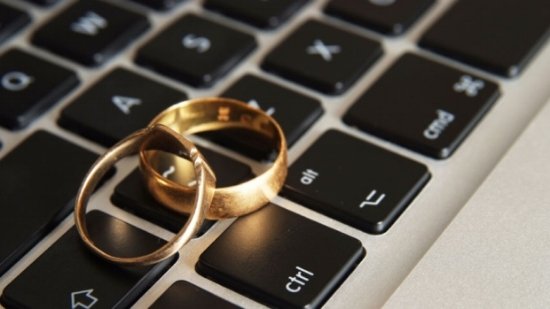Does Online Dating Make for a Happier Marriage?
Increasingly, the answer to the question "How did you meet?" will look less like this:
“Our eyes met across a crowded street.”
And more like this:
“We both swiped right!”
THE ONLINE DATING REVOLUTION
According to recent estimates, nearly 50 million people in the U.S. have tried online dating. Though you might consider it contrary to conventional wisdom, couples who connect on the web may have a leg up - if and when their budding romances move toward matrimony. A notable body of research suggests that couples who start their relationships online are more likely to have healthier marriages than their counterparts who meet in person.
Josué Ortega of the University of Essex and Philipp Hergovich of the University of Vienna cite theoretical evidence in support of online dating in a piece published by the MIT Technology Review. Their conclusions were based on a simulation of 10,000 computer-generated societies and the potential relationships that might occur. The team measured the success of marriages based on compatibility and found a significant upside when the online component was added.
DOES ONLINE DATING LEAD TO BETTER RELATIONSHIPS?
The question begs as to whether this dynamic can withstand the test of the real world. Science says yes. In fact, earlier studies involving real people suggest that online relationships appear to be a step ahead. A study published in journal Proceedings of the National Academy of Sciences involved more than 19,000 individuals who got married over a period of seven years. Those who met their spouses through online dating reported more satisfying marriages overall as well as fewer instances of separation or divorce.
And if you're aiming to get 'down the aisle' a little quicker, it seems that online dating may be the way to go. Recent research published by the journal Sociological Science reveals that couples who meet online generally make the transition to marriage faster than those who started offline.
Another peculiar phenomenon revealed through Ortega and Hergovich's study was the prevalence of interracial marriages. Though increasing for some time, interracial marriage rates have remained relatively low. The rate of increase seems to coincide with the advent of online dating. The researchers note that, “it is intriguing that shortly after the introduction of the first dating websites in 1995, like Match.com, the percentage of new marriages created by interracial couples increased rapidly.”
INTENTIONS MATTER
Now to keep things in perspective, none of this research serves as a fool-proof guarantee that dating online is an automatic indicator of stronger relationships. The fact is that individuals who opt for dating sites may be more intentional in their quest for substantive connections than those who meet in a more casual setting. In fact, statistics reveal that a vast majority of users of the popular social site Tinder are more interested in a meaningful relationship than a casual encounter.
Our world is inevitably connected via electronic media and it seems that our search for relationships is an inescapable part of the trend. Research put forth by the UK arm of eHarmony suggests that by the year 2040, "70% of relationships will be able to attribute their coming-together to online dating or online communication."
Online dating is subject to mixed reviews. However, the impact of dating sites on modern society is irreversible. Online dating is the 2nd most common way for heterosexual couples to connect in the United states and the single most common method among homosexual couples. Looking at the current landscape, online dating will inevitably continue to change how we get into relationships, how we are in relationships, and how likely relationships are to last.


